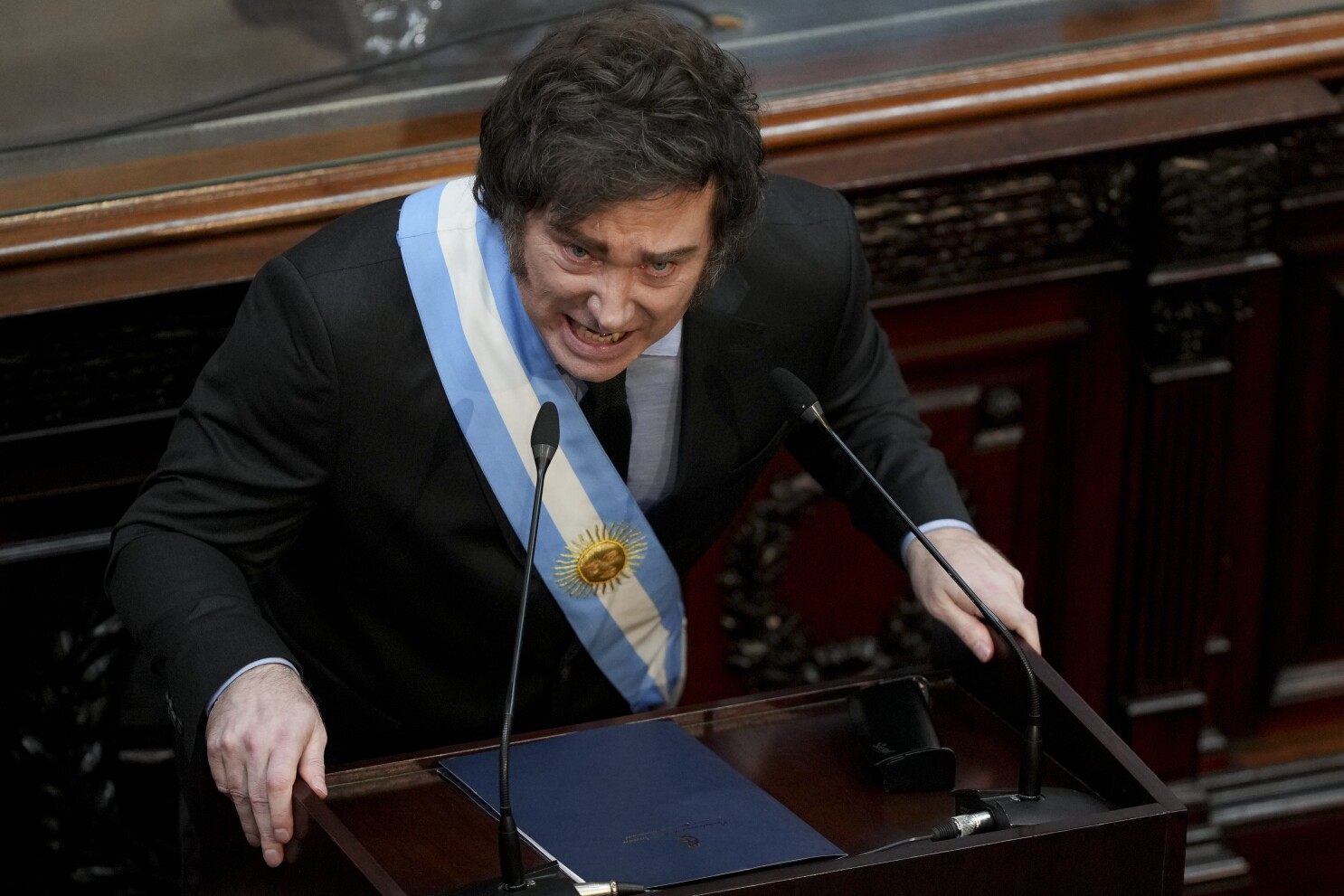The stream of marchers stretches for miles along Avenida Reforma, Mexico City’s main thoroughfare for the rich and powerful. The macro-organization of the march, some 30,000 strong, reflects the micro-organization of Mexican society–most people walk proudly behind the banner of their school, their neighborhood association, their union. The red t-shirts of the “Francisco Villa Popular Front” paint several city blocks. The students of the National University don’t wear matching shirts, but their contingent is just as numerous–and more boisterous.
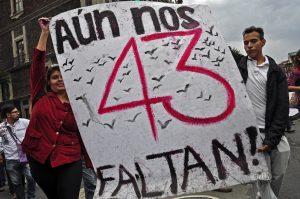
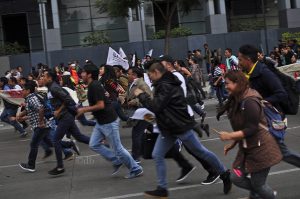
These are collective expressions within a collective expression, today–miraculously for Mexico–speaking with a single voice: “Bring them back alive!”
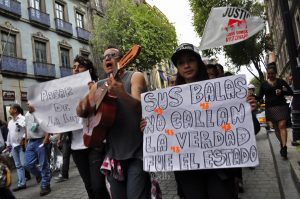
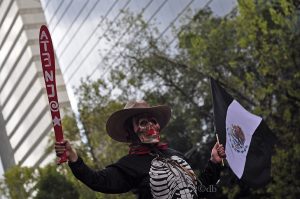 After two years, nothing is forgotten and nothing is forgiven. The marchers have turned out by the thousands to tell the government of Enrique Peña Nieto that the forced disappearance of the 43 students of the Ayotzinapa Teachers College on September 26, 2014 continues to be a rallying cry for a people who are fed up with the violence and lack of justice in the county.
After two years, nothing is forgotten and nothing is forgiven. The marchers have turned out by the thousands to tell the government of Enrique Peña Nieto that the forced disappearance of the 43 students of the Ayotzinapa Teachers College on September 26, 2014 continues to be a rallying cry for a people who are fed up with the violence and lack of justice in the county.
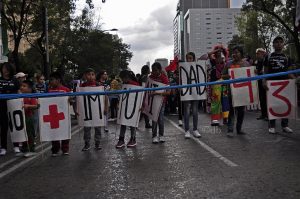
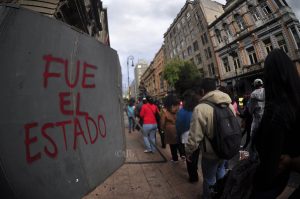
Although there are all people of all ages and backgrounds, the youth rule the day.
Teen-aged students from the other rural teaching colleges across the country march in tight rows and launch angry chants. For them the crime hit close to home. Their schools are slated for obsolescence by the government’s new education reform. They know the price of opposition but they also know the cost of surrender.
When the march reaches the Zocalo central plaza, the crowd gathers between the giant tents put up for some city government event around a stage in the corner. Six parents speak–three mothers and three fathers. After two years they’re mad, frustrated and determined not to let go of hope or stop fighting back.
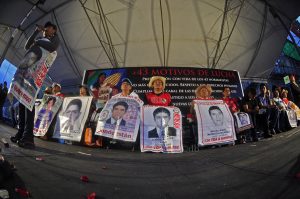
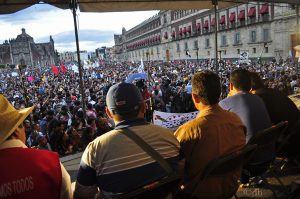
Hilda Legideño, mother of Jorge Antonio, one of the disappeared, addresses the crowd from the stage: “We, the people, have to make demands; we, the people, have to raise our voices. Because if we don’t, soon it will be other parents who will suffer the absence of their children; it will be other parents who will cry because their children are missing; it will be other parents who are told their children have been murdered. As human beings, as Mexicans, we are raising our voices so this won’t go on.”
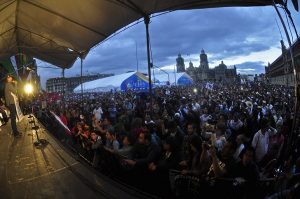
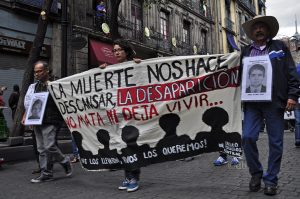
The major demands are to find the students, respect the follow-up mechanisms established by the Inter-American Comission on Human Rights for continuing the investigation, prosecuting the guilty and searching for the other disappeared as well. Truth and Justice, in a word.
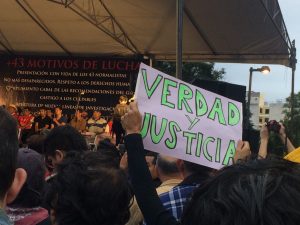
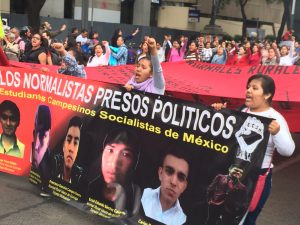
A banner across the stage reads: “43 reasons to fight back” This is exactly what every speaker, every parent, every demon-strater vows to do.
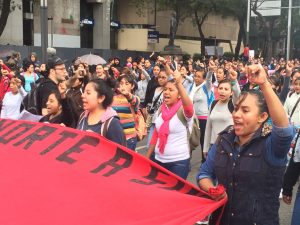
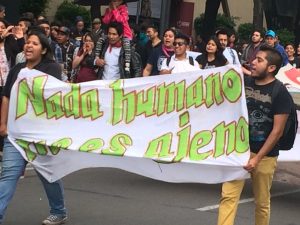
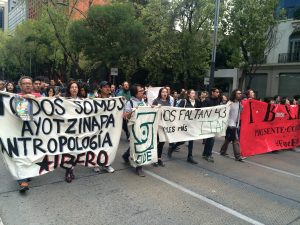
Photos: Debora Poo and Laura Carlsen


